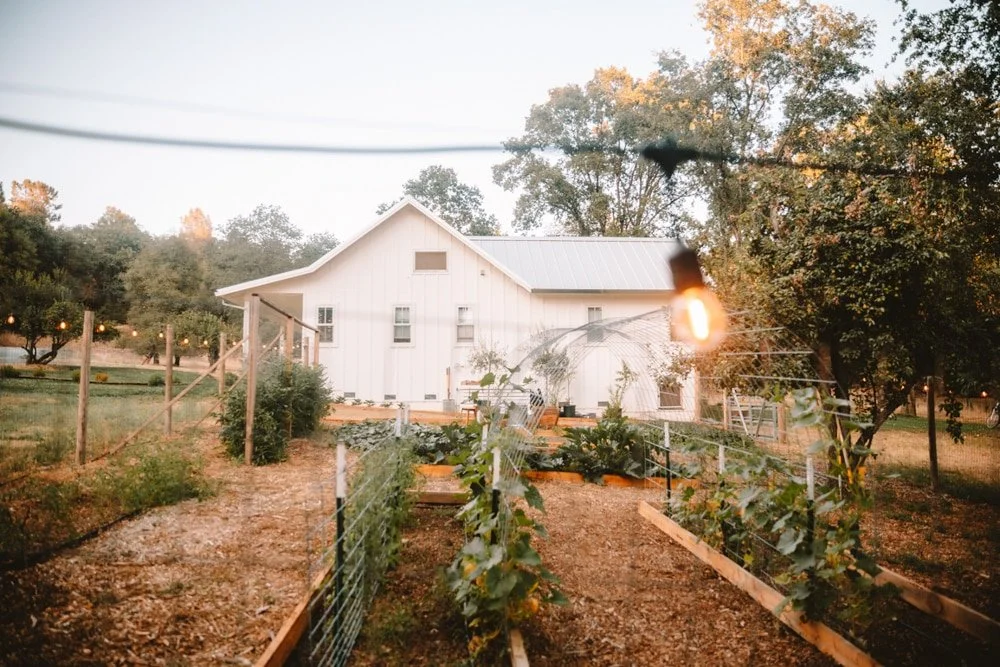Living Off the Grid: 10 Expert Tips for Sustainable Homesteading
Are you ready to embrace self-sufficiency and reduce your reliance on modern systems? Whether you're considering homesteading, or simply living off the grid, it requires strategic planning and a sustainable mindset. Here are ten essential tips to help you make the transition.
1. Modular Housing: A Sustainable and Flexible Solution
Modular housing refers to pre-fabricated homes that are built in sections (modules) in a factory and then transported to your location for assembly. These homes are flexible, energy-efficient, and customizable, making them an excellent choice for off-the-grid living. The construction process also minimizes waste, and you can often choose materials that align with sustainable practices, such as bamboo, reclaimed wood, or recycled metal.
2. Powering Your Homestead: Beyond Solar Panels
While solar panels are often the go-to for generating power off the grid, there are numerous other options. Wind turbines, micro-hydro systems (if you’re near flowing water), and geothermal energy can also provide sustainable power. In addition, homesteaders can turn to more traditional methods such as burning animal dung (an age-old practice in many cultures) or wood to generate heat and energy. With the right combination, you can achieve a truly self-sufficient energy setup that reduces your reliance on external utilities.
3. Designing Your Home: Embracing Nature's Wisdom
When planning your off-grid home, consider the principle of "art imitates life." Just as ecosystems work harmoniously, your home should integrate with the natural environment around it. This could mean positioning your house to maximize natural light, strategically planting trees for shade and wind breaks, or using natural land contours to enhance insulation. A metaphor that captures this concept well is the palm tree: it stands tall and rooted, providing shade and shelter while bending with the wind. In essence, your homestead should be a reflection of its surroundings, working with nature rather than against it.
4. Compost: Supercharge Your Soil and Increase Yield
Composting is more than just a way to reduce waste—it’s a powerful tool for bolstering food and animal production. When you compost food scraps, manure, and other organic matter, you create nutrient-rich soil that can significantly improve the yield of your crops. Studies have shown that compost can increase agricultural production by up to 30%, helping to grow healthier, stronger plants. This, in turn, boosts the food supply for your livestock, creating a self-sustaining cycle that’s essential for off-grid living. With improved soil, you can maximize your harvest and reduce the need for chemical fertilizers.
5. Autonomous Urban Housing: Self-Sufficient in Every Sense
Autonomous integral urban housing is a concept that envisions homes as fully self-reliant systems, often without any need for external utilities. These houses generate their own electricity, collect and recycle water, and grow food within the property. The model integrates solar panels, greenhouses, composting toilets, and rainwater collection, effectively turning your home into a self-contained ecosystem. The idea of merging urban living with sustainable practices is gaining popularity, particularly in off-the-grid communities where people seek modern comforts without compromising environmental responsibility.
6. Securing Water and Food: The Cornerstones of Independence
Identifying a clean and reliable water source is a critical step in living off the grid. Whether you tap into a natural spring, collect rainwater, or create an innovative water recycling system, access to water is non-negotiable. As for food, homesteading means cultivating crops and raising animals. Understanding food procurement and storage methods like canning, drying, or smoking meat ensures a year-round food supply. By establishing a robust system for food and water, you create the foundation for a truly independent lifestyle.
7. Sustainable Clothing: Think Beyond the Basics
When you live off the grid, your clothing should also reflect sustainable practices. Homesteading opens up opportunities to explore materials like hemp, bamboo, or wool from sheep, all of which are renewable and environmentally friendly. These alternatives are not only durable but also naturally resistant to wear and tear, which means you can create long-lasting clothing that aligns with your eco-conscious goals.
8. Vertical Housing: Preserve the Land
Building upwards rather than outwards is one way to minimize your impact on the land. Vertical housing reduces land degradation, leaving more space for agriculture, wildlife, or natural habitats. This approach can also optimize natural ventilation and sunlight exposure, reducing energy demands and making your home more efficient.
9. Waste Management: Turning Trash into Treasure
Proper waste disposal is essential in an off-the-grid setting. Innovative methods like human excrement composters or methane gas recovery systems can turn waste into energy. Methane produced from composted waste can be burned as a fuel source, reducing harmful emissions while the remaining compost can enrich your soil. By viewing waste as a resource, you close the loop and further enhance your homestead's sustainability.
10. Building Community: Nature as a Model
Community is a crucial component of successful off-grid living. Just like palm trees in a grove support each other with shared shade and protection, you can build a strong network with fellow homesteaders and neighbors. Whether it’s sharing resources, knowledge, or supplies from occasional trips to town, community-building ensures that you have the support needed to thrive off the grid.
Final Thoughts: Sustainability is a Journey
Going off the grid isn't just about leaving modern conveniences behind—it's about forging a new path rooted in sustainability, self-sufficiency, and respect for nature. As you embark on this journey, remember that resourcefulness, ingenuity, stewardship and the three R’s “Reduce, Reuse, and Recycle” will guide you towards a more balanced and sustainable life.


